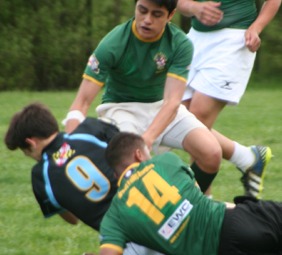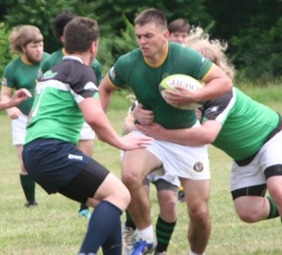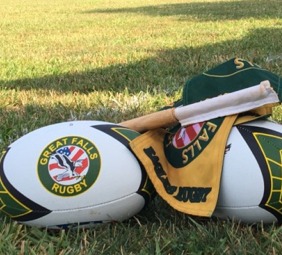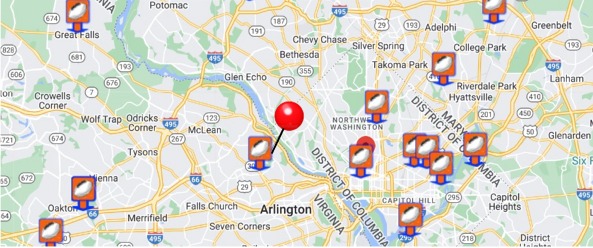WHAT IS RUGBY?
Rugby is a free-flowing game that features a combination of strength, speed and strategy to move a ball into an opponents territory, and score points. Rugby is a team sport that delivers significant social and health benefits. Rugby offers a number of values that are essential in everyday life.
It can also be a physically demanding sport (notably at the tackle and especially at the adult levels) and players should be physically and mentally prepared, and understand how to play safely.
It is the responsibility of all - players, coaches and parents - to ensure that a positive, safe, and enjoyable environment is created where ALL players will be able to reach their fullest potential. Whatever form of the game you play - the training and education materials and equipment are there to support everyone in creating that environment.
Is rugby for everyone?
YES! There are variations of rugby that allows everyone to play, boys and girls, men and women, contact and non-contact. In the youth leagues, rugby is NON-CONTACT (tag or 'touch' rugby) and COED until the 5th grade (depending on your location), and thereafter contact (tackle) for boys and girls separately. In addition, we play two variations of rugby in our area: 15-a-side (the traditional form of rugby), and 7-a-side rugby, which is growing in popularity especially since is became an Olympic sport. Read more about the variations here. Read more about NON-CONTACT rugby (or Rookie Rugby) here.
Is rugby like American football?
American football was derived from rugby, but there are some major differences. The most obvious differences are that (i) forward-passes and (ii) blocking of any sort are not allowed in rugby. Other differences include the lack of hard protective equipment such as a helmet and the continuous nature of the game (the clock is always running akin to European football/soccer). Another importance difference is that on any given play, rugby players are concerned more about retaining ball possession than gaining yardage. Possession in rugby is not related to gaining a certain amount of yardage in a certain amount of time.
Read more about the rugby vs. football debate, the similarities between the sports, and how playing rugby makes you a better football player See here.
How can I play, I don't even know the rules?
The game of rugby, although technically complicated, can be easily played by beginners. Many positions do not require a vast understanding of the game, but only require a few practices. The fastest way to learn is to simply come out and play a few games. You will find many rookies at any time when you attend practices.
Am I too big or too too small to play?
One very appealing aspect of rugby is that players of many shapes, sizes and fitness levels can and do play together. Some positions prefer speed and skill, some require heavy lifters and grunt work, and others a mix. Read more about rugby and learning positions, phases of play, etc here.
Is rugby safe?
For some people rugby may have a poor reputation when it comes to safety and parents are afraid of sending kids to participate. However, this is a common myth; as described by Lyle J. Micheli, MD and past president of the American College of Sports Medicine:
The main reason rugby players have a relatively low risk of injury (10%) compared to football players (52%) is paradoxical - rugby players don't wear protective equipment. Thus the rugby player doesn't have the same disregard for the safety of his or her head, neck, and shoulders when tackling or trying to break through a tackle.
The other reason is that unlike football, rugby is a game of possession, not yardage. Consequently rugby players don't tackle by "driving through the numbers", as football players are taught to do with their heads when tackling a player.
In rugby, players are taught to use their arms to wrap a player's legs and let the momentum of that player cause him to go to ground.
Furthermore, in rugby there is no blocking, and so players who don't have the ball don't get hit when they're not expecting it.
One of the reasons rugby has a reputation for being "dangerous" in the United States is because when the average American sees rugby being played, he or she sees a free-flowing contact sport. Because it doesn't have the familiar stop-and-start character of football and other TV-shaped sports, to the uninitiated rugby can appear confusing and "scary."
Furthermore, while the bumps, bruises, and scrapes you see on the elbows, knees, and faces of many rugby players can appear alarming, they are of considerably less concern than the anterior cruciate ligament ruptures, finger fractures and dislocations, and chest contusions characteristic of a sport such as football in which heavy protective equipment is worn.
Read the full article
here.




